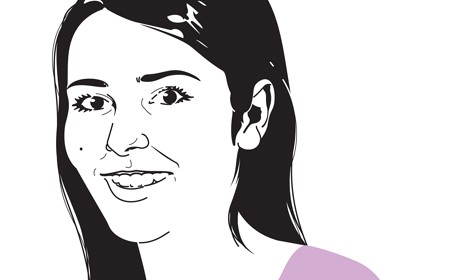How I learned to stop worrying and love Twitter
Is anything more uniquely American than our free-wheeling, 140-character missives?

A free daily email with the biggest news stories of the day – and the best features from TheWeek.com
You are now subscribed
Your newsletter sign-up was successful
Twitter is dead, you guys. Writers used to send pithy tweets across cyberspace, borne on the golden wings of Hermes. Now, as T.S. Eliot would say, "Our dried voices, when we whisper together are quiet and meaningless." Twitter is so uncool, that even if we resurrected the spirits of Jim Morrison and Jimi Hendrix and got them to tweet never-before-heard song lyrics from the grave, they would have like, 20 followers, tops. And most of them would be spambots. Do you know what else is dead? Rock and roll. When I put on the Dead Weather or Jay-Z, my parents inform me that music used to be all about free love and sharing ideas and now, "Will you turn off that crap you're hurting my ears." There is no cool left for me. I must survive on the vapors of Lady Gaga's strange perfume and the shiny white veneer of Kim Kardashian's teeth. But it's okay, it's not like I can tell the difference.
Hi. I'm a twenty-something journalist. And unlike my colleague Matt K. Lewis, I like Twitter.
Now, I can see where Matt is coming from. The popularity of Twitter used to befuddle me. When I was in college, I had a private account (rookie mistake) and only followed my friends. My feed read something like an episode of Girls, except with more substance-abuse problems. Twitter did seem kinda like high school, and, as Matt says, was more prison than vision (although to this day, I love a good nonsensical midnight Twitter ramble. And Horse E-Books.) But a couple years later, once I was a working journalist, I started following an increasingly diverse set of people. And another cool thing happened: The Arab Spring. Citizen activists in countries like Egypt, Libya, and Yemen successfully organized revolutionary protests through the social network, and all of a sudden, I stopped viewing Twitter as a place where people just talked about their hangovers.
The Week
Escape your echo chamber. Get the facts behind the news, plus analysis from multiple perspectives.

Sign up for The Week's Free Newsletters
From our morning news briefing to a weekly Good News Newsletter, get the best of The Week delivered directly to your inbox.
From our morning news briefing to a weekly Good News Newsletter, get the best of The Week delivered directly to your inbox.
Since then, I have been tasked with tweeting from the official accounts of several media organizations — I'm kind of a professional tweeter. By the end of today, I (and my colleagues) will have written and sent out about 70 tweets for Mother Jones — tweets that are (hopefully) informative, spelled correctly, promote our content, match the tone of the publication, and don't accidentally include cat gifs or naked pictures. If anything should make one despise Twitter, it's being required to tweet all day long. But instead, it's only made me more fond of the damn thing.
Every day, I get to hear from people, REAL LIVE PEOPLE, who are exercising their free speech rights about something my colleagues and I wrote with our free speech rights. How cool is that? What could be more American than a bunch of strangers conversing in real time about whether the Boy Scouts can constitutionally ban gay members, that great Local Natives album that just came out, and who is really the communist here? (Okay, fine. It's me.)
Another point in Twitter's favor: Go to Facebook or (God forbid) the homepages of various news organizations, and you're never going to easily or quickly find as many live updates of Hurricane Sandy, the Sandy Hook school shooting, or the 2012 presidential election as you would on Twitter. It's the go-to place for lightning-quick, easily searchable information. (By contrast, if you need a live update of which color mason jars you should have at your wedding someday, Pinterest has so got you covered.)
And unlike journalists exhausted by the troll-y nature of the beast, I like the free-wheeling accessibility of Twitter. The quality of my interactions are mostly positive, probably because I tend to only follow people I would be interested in speaking with in the real world. And just like the real world, sometimes some crazy guy who smells like whiskey and is probably on PCP will try to flash me on the Metro. But that just makes it kind of exciting, right?
A free daily email with the biggest news stories of the day – and the best features from TheWeek.com
Dana Liebelson is a reporter for Mother Jones. A graduate of George Washington University, she has worked for a variety of advocacy organizations in the District, including the Project on Government Oversight, International Center for Journalists, Rethink Media, the Reporters Committee for Freedom of the Press, and Change.org. She speaks Mandarin and German and plays violin in the D.C.-based Indie rock band Bellflur.
-
 The EU’s war on fast fashion
The EU’s war on fast fashionIn the Spotlight Bloc launches investigation into Shein over sale of weapons and ‘childlike’ sex dolls, alongside efforts to tax e-commerce giants and combat textile waste
-
 How to Get to Heaven from Belfast: a ‘highly entertaining ride’
How to Get to Heaven from Belfast: a ‘highly entertaining ride’The Week Recommends Mystery-comedy from the creator of Derry Girls should be ‘your new binge-watch’
-
 The 8 best TV shows of the 1960s
The 8 best TV shows of the 1960sThe standout shows of this decade take viewers from outer space to the Wild West